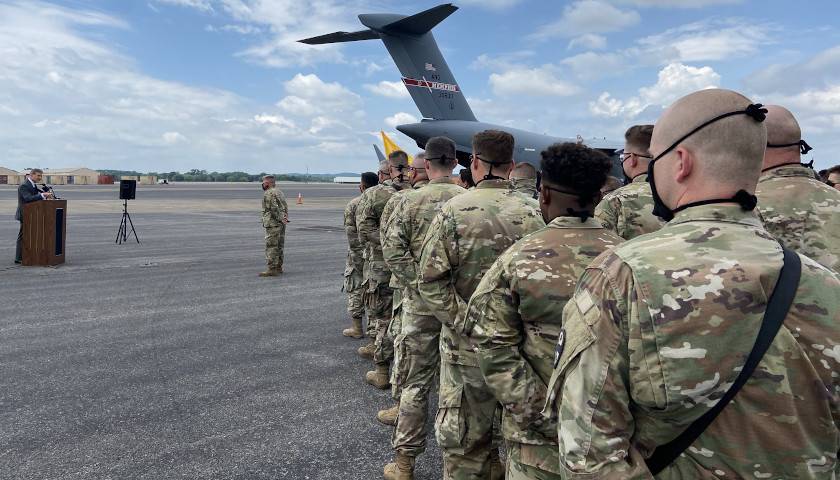by Christian Wade
A federal watchdog agency has denied Connecticut-based Sikorsky Aircraft’s appeal of the U.S. Army’s rejection of the company’s bid to build the next generation of long-range assault helicopters.
Sikorsky, a Lockheed Martin company, had filed a formal protest asking the U.S. Government Accountability Office to review the Army’s decision to reject their bid to produce its Defiant-X helicopter under a military contract.
The maker of the iconic Black Hawk helicopters, which partnered with Boeing, argued the Army didn’t properly evaluate its engineering design and development factors when it awarded the $1.3 billion long-range helicopter contract to Bell Textron, a Texas-based company.
But the federal watchdog concluded in a decision issued last week that the Army “reasonably evaluated Sikorsky’s proposal as technically unacceptable” and noted that Sikorsky failed to provide the level of architectural details under the Army’s request for proposals, among other factors.
“GAO’s decision expresses no view as to the merits of these proposals,” the agency said in a statement. “Judgments about which offeror will most successfully meet the government’s needs are reserved for the procuring agencies, subject only to statutory and regulatory requirements.”
In a joint statement, Lockheed Martin Sikorsky and Boeing said the companies were still reviewing the GAO’s decision and determining a response.
“We remain confident the Lockheed Martin Sikorsky and Boeing team submitted the most capable, affordable and lowest-risk Future Long-Range Assault Aircraft solution,” the companies said.
Gov. Ned Lamont called the rejection of the appeal “disappointing,” but pledged to work with the state’s congressional delegation to keep “Sikorsky and their world-class workforce here on the ground in Stratford and their choppers in the skies.”
“America needs them. Our troops need them. We need them,” Lamont said in a statement. “With many years of production left for the Black Hawk and CH-53K King Stallion and additional competitions coming down the road, Sikorsky will keep Stratford, Connecticut, and democracy strong.”
The Army’s decision could impact an agreement that Sikorsky signed with Connecticut to keep its operations in the state in exchange for hefty tax breaks. The deal, signed last year, made Sikorsky eligible for up to $75 million in tax credits, contingent on it securing two major U.S. military contracts to produce helicopters and other equipment.
Sikorsky is one of the state’s largest military contractors, employing thousands of people at its Stratford headquarters and other locations. The package of tax breaks and incentives were aimed at ensuring the firm remains headquartered in Connecticut for at least another 20 years.
Members of the state’s congressional delegation have also weighed into the debate, calling for a detailed briefing with Army officials to understand why Sikorsky lost out on the military bid.
The Army has defended its decision, saying it followed a “deliberate and disciplined process” in evaluating proposals for its Future Long Range Assault Aircraft contract to “ensure rigorous review and equitable treatment of both competitors.”
The Army’s Future Long Range Assault Aircraft program calls for replacing the aging H‑60 Black Hawk utility helicopter fleet, which is expected to cost more than $7.1 billion.
Sikorsky, which has been producing Black Hawks since the late 1970s, will continue to build the helicopters until 2027 under a previous Army contract.
– – –
Christian Wade is a contributor to The Center Square.
Photo “Black Hawk Helicopter” by Kārlis Dambrāns.CC BY-NC 2.0.




